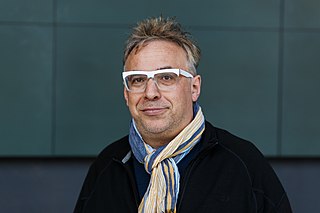A Quote by Paul Watzlawick
The belief that one's own view of reality is the only reality is the most dangerous of all delusions.
Related Quotes
As I have already said, the belief that one's own view of reality is the only reality is the most dangerous or all delusions. It becomes still more dangerous if it is coupled with the missionary zeal to enlighten the rest of the world, whether the rest of the world wishes to be enlightened or not. To refuse to embrace wholeheartedly a particular definition of reality, to dare to see the world differently can become a "think crime" in a truly Orwellian sense as we get steadily closer to 1984.
There's an all-enveloping destructiveness in Donald Trump's character and in his psychological tendencies. But I've focused on what professionally I call solipsistic reality. Solipsistic reality means that the only reality he's capable of embracing has to do with his own self and the perception by and protection of his own self. And for a president to be so bound in this isolated solipsistic reality could not be more dangerous for the country and for the world. He's not psychotic, but I think ultimately this solipsistic reality will be the source of his removal from the presidency.
We're all looking from the point of view of our own reality tunnels. And when we begin to realize that we're all looking from the point of view of our own reality tunnels, we find that it is much easier to understand where other people are coming from. All the ones who don't have the same reality tunnel as us do not seem ignorant, or deliberately perverse, or lying, or hypnotized by some mad ideology, they just have a different reality tunnel. And every reality tunnel might tell us something interesting about our world, if we're willing to listen.
Plot involves fragmentary reality, and it might involve composite reality. Fragmentary reality is the view of the individual. Composite reality is the community or state view. Fragmentary reality is always set against composite reality. Virginia Woolf did this by creating fragmentary monologues and for a while this was all the rage in literature. She was a genius. In the hands of the merely talented it came off like gibberish.
I share the belief of many of my contemporaries that the spiritual crisis pervading all spheres of Western industrial society can be remedied only by a change in our world view. We shall have to shift from the materialistic, dualistic belief that people and their environment are separate, toward a new consciousness of an all-encompassing reality, which embraces the experiencing ego, a reality in which people feel their oneness with animate nature and all of creation.
If science proves some belief of Buddhism wrong, then Buddhism will have to change. In my view, science and Buddhism share a search for the truth and for understanding reality. By learning from science about aspects of reality where its understanding may be more advanced, I believe that Buddhism enriches its own worldview.
To us ... the only acceptable point of view appears to be the one that recognizes both sides of reality-the quantitative and the qualitative, the physical and the psychical-as compatible with each other, and can embrace them simultaneously ... It would be most satisfactory of all if physis and psyche (i.e., matter and mind) could be seen as complementary aspects of the same reality.
... what is faked [by the computerization of image-making], of course, is not reality, but photographic reality, reality as seen by the camera lens. In other words, what computer graphics have (almost) achieved is not realism, but rather only photorealism - the ability to fake not our perceptual and bodily experience of reality but only its photographic image.





































